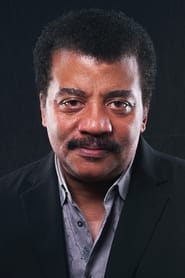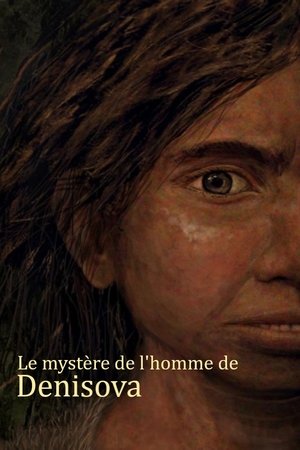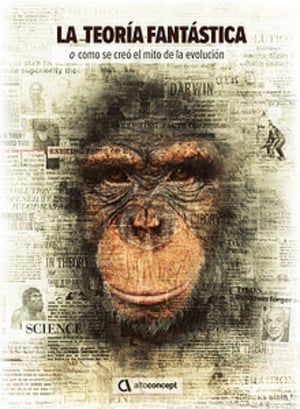
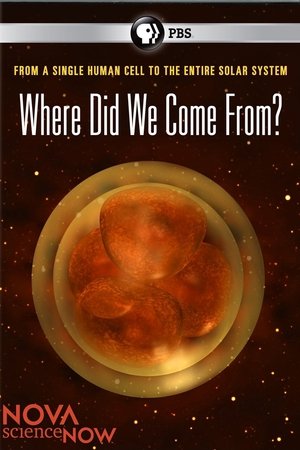
Where Did We Come From?(2011)
Host Neil deGrasse Tyson tackles one of science's major challenges in each segment of Where Did We Come From? He will guide us as he explores dramatic discoveries and the frontiers of research that connect each central, provocative mystery. Program includes: Revealing the Origins of Life; Origins of the Solar System; Lice and Human Evolution; and Profile: Andre Fenton
Movie: Where Did We Come From?

Where Did We Come From?
HomePage
Overview
Host Neil deGrasse Tyson tackles one of science's major challenges in each segment of Where Did We Come From? He will guide us as he explores dramatic discoveries and the frontiers of research that connect each central, provocative mystery. Program includes: Revealing the Origins of Life; Origins of the Solar System; Lice and Human Evolution; and Profile: Andre Fenton
Release Date
2011-03-29
Average
0
Rating:
0.0 startsTagline
Genres
Languages:
Keywords
Similar Movies
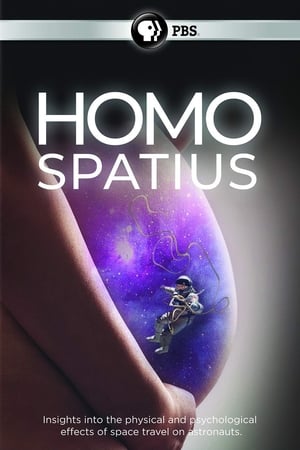 6.1
6.1Homo Spatius(fr)
Can Homo sapiens evolve into Homo spatius? For over 50 years now, we have been testing our human nature in our effort to conquer outer space, and still 30 years away from a possible human exploration of Mars, a question remains: Can our body take such travels? Will it ever adapt? Combining human adventure and the exploration of the human body, this film offers unique insights into the physical and psychological effects of space travel on the Astronauts and measures the impact on medical sciences.
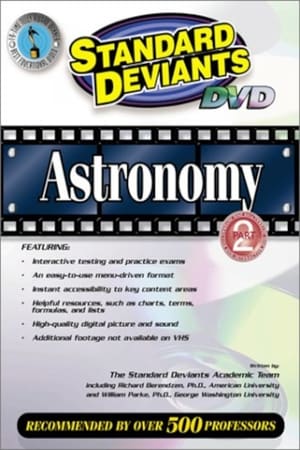 0.0
0.0The Standard Deviants: The Really Big World of Astronomy, Part 2(en)
In Astronomy Part 2, you will learn all about the planets, asteroids, comets, meteoroids, the layers of the sun, fusion, and more. The Standard Deviants make learning astronomy easier with their unique teaching style, which incorporates humor, mnemonics, and sophisticated computer graphics.
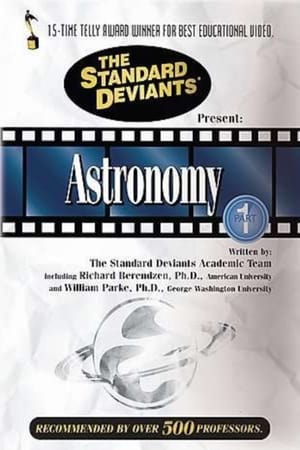 0.0
0.0The Standard Deviants: The Really Big World of Astronomy, Part 1(en)
This series also covers the essential concepts of astronomy: gravity, the light spectrum, Earth's magnetic field, the solar system, the sun, Kepler's Law, the universal law of gravitation, the Doppler Effect, and much more!
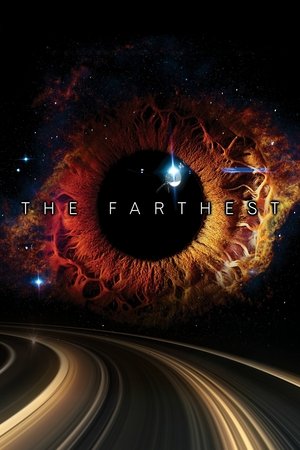 7.8
7.8The Farthest(en)
The captivating tales of the people and events behind one of humanity's greatest achievements in exploration: NASA's Voyager mission.
The Mind's Big Bang(en)
The events and coincidences that led to rapid advances in human intelligence 50,000 years ago.
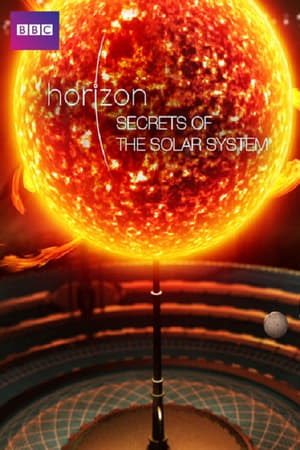 7.2
7.2Secrets of the Solar System(en)
New planets are now being discovered outside our solar system on a regular basis, and these strange new worlds are forcing scientists to rewrite the history of our own solar system. Far from a simple story of stable orbits, the creation of our solar system is a tale of hellfire, chaos and planetary pinball. It's a miracle our Earth is here at all.
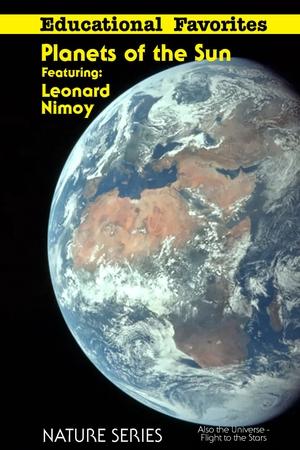 0.0
0.0Planets of the Sun(en)
An Educational Favorites VHS from the NATURE SERIES featuring Leonard Nimoy
 7.0
7.0Searching for Skylab, America's Forgotten Triumph(en)
The first American space station Skylab is found in pieces scattered in Western Australia. Putting these pieces back together and re-tracing the Skylab program back to its very conception reveals the cornerstone of human space exploration.
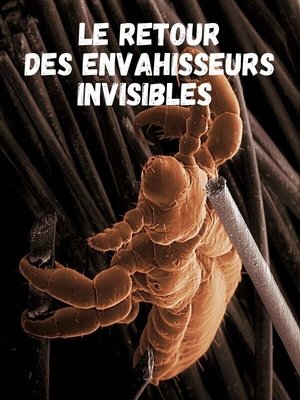 5.5
5.5The squatters’ Return(fr)
Lice, bedbugs, fleas, mites, mosquitoes, ticks, crab lice, which we believed for a moment we had gotten rid of, once again proliferate. Bedbugs invade city centers, lice are doing most well, the Tiger mosquito is on the way to Germany, ticks abound. Why are they back? How can we eliminate rapidly these very unwanted guests? Scientists point the finger at global warming, our too well insulated homes, our lifestyle changes, but also the genetic mutations of these invaders. If some parasites cause minor afflictions, others are vectors of very disabling diseases such as Lyme disease. Embark on a scientific investigation to understand the unexpected return of these bloodsuckers and the potential risks to our health.
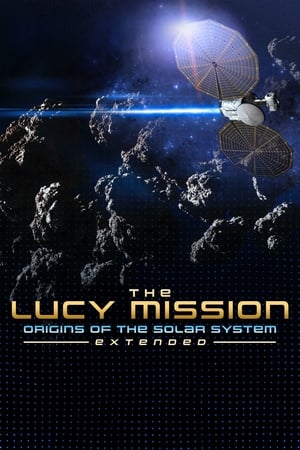 8.0
8.0The Lucy Mission: Origins of the Solar System(en)
For two and a half years we followed the scientific team of the NASA Lucy Mission a mission that will unveil the origins of the Solar System and shared with them the many challenges they had to overcome such as a countdown to launch on time the building of the huge solar arrays or a pandemic.
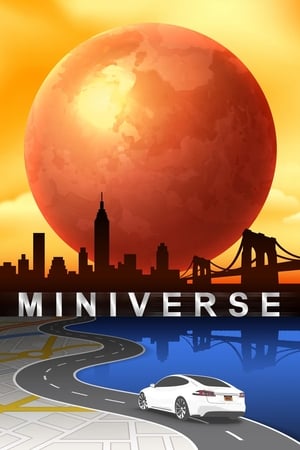 5.0
5.0Miniverse(en)
What if you could get behind the wheel and race through space? We scale down the Solar System to the continental United States and place the planets along the way to better appreciate the immense scale of the Universe. See space as never before, with Mars looming over the Freedom Tower and Jupiter towering above the Lincoln Memorial. Join former astronaut Chris Hadfield - a YouTube sensation for his performance of David Bowie’s “Space Oddity” aboard the International Space Station - and his interstellar hitchhikers Michio Kaku and astronomers Derrick Pitts and Laura Danly. It’s a joyride from coast to coast - and from the sun to Pluto.
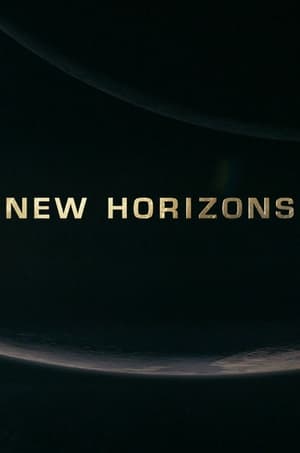 8.5
8.5New Horizons(en)
A brief visualisation of NASA’s historic spacecrafts Mariner, Pioneer, Voyager, and Dawn, exploring the solar system, culminating in the New Horizons mission.
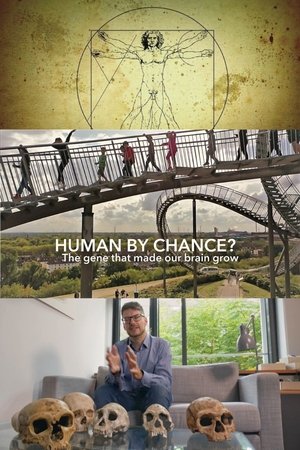 0.0
0.0Human By Chance?(en)
If we compare ourselves with our genetically closest living relatives, the chimpanzees, we have few physical advantages. We are far weaker, cannot move nearly as fast, and do not have the same climbing capabilities. Instead, humans excel in areas such as architecture, religion, science, language, writing, art, culture, and ideas. These achievements are due to our larger brain that contain billions of neurons. It was the rapid growth of our brain, originating about 2 million years ago, that allowed us to be the predominant species of the world. What caused this rapid growth of our cerebral cortex? Researchers worldwide have asked this question for many years, but now there finally seems to be an answer.
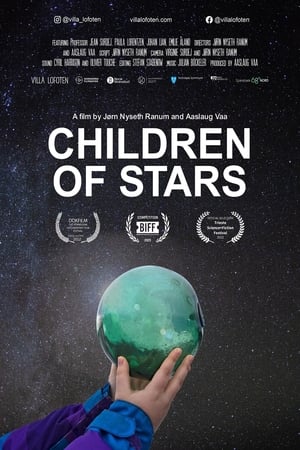 6.0
6.0Children of Stars(no)
Astrophysicist Jean Surdej brings a small group of teenage pupils on a trip to the Lofoten islands in northern Norway, for a very special class on the solar system. Using the geography of the archipelago to illustrate the distances between the planets, they journey through space by car and ferry, with the picturesque landscapes standing in for the black emptiness that surround the heavenly bodies. A masterstroke of both pedagogy and filmmaking, Children of Stars is a captivating documentary about humanity's place in the grand scheme of things.
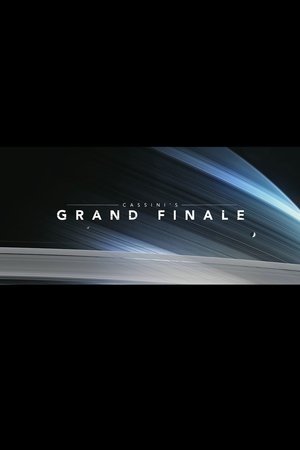 7.5
7.5Cassini's Grand Finale(en)
To help visualize the dramatic final chapter in Cassini's remarkable story, NASA's Jet Propulsion Laboratory produced this short film that features beautiful computer-generated animation, thoughtful narration and a rousing score. Producers at JPL worked with filmmaker Erik Wernquist, known for his 2014 short film "Wanderers," to create a stirring finale video befitting one of NASA's most successful missions of exploration.
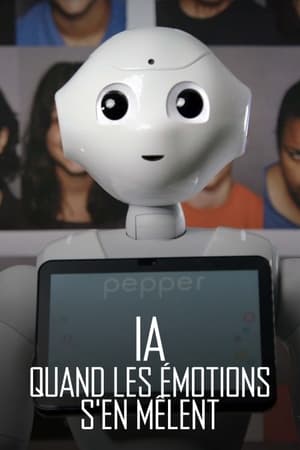 7.0
7.0Intelligence artificielle - Quand les émotions s'en mêlent(fr)
With the rapid advancements in artificial intelligence, the line between humans and machines continues to blur, and everything is evolving at an astonishing pace as this technology offers tantalizing promises. However, some researchers, including 2024 Nobel Prize in Physics laureate Geoffrey Hinton, warn about its exponential power. A deep dive into the dizzying complexities of AI.
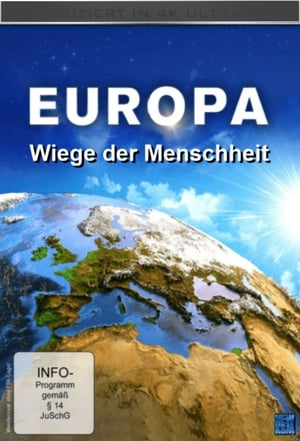 7.5
7.5Out Of Europe(de)
Looking at whether the history of early human evolution should be rewritten. For decades, most experts have been convinced that Africa is the cradle of mankind and many fossil finds from Kenya, Ethiopia, South Africa and Chad seemed to prove it.
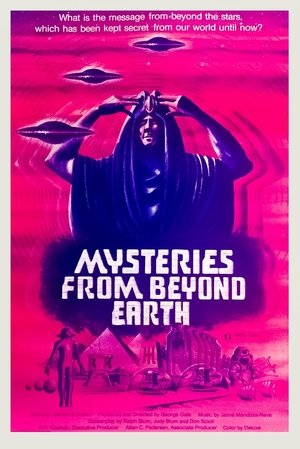 3.0
3.0Mysteries from Beyond Earth(en)
Narrator Lawrence Dobkin examines unusual paranormal activities and conspiracy theories in several eerie segments. Subjects include flying saucers and alien encounters, the disappearance of Atlantis, the Bermuda Triangle and the origins of Bigfoot, telekinesis, witchcraft, and the unusual notion that human evolution and technology might have been moved forward with assistance from intelligent extraterrestrial beings.
